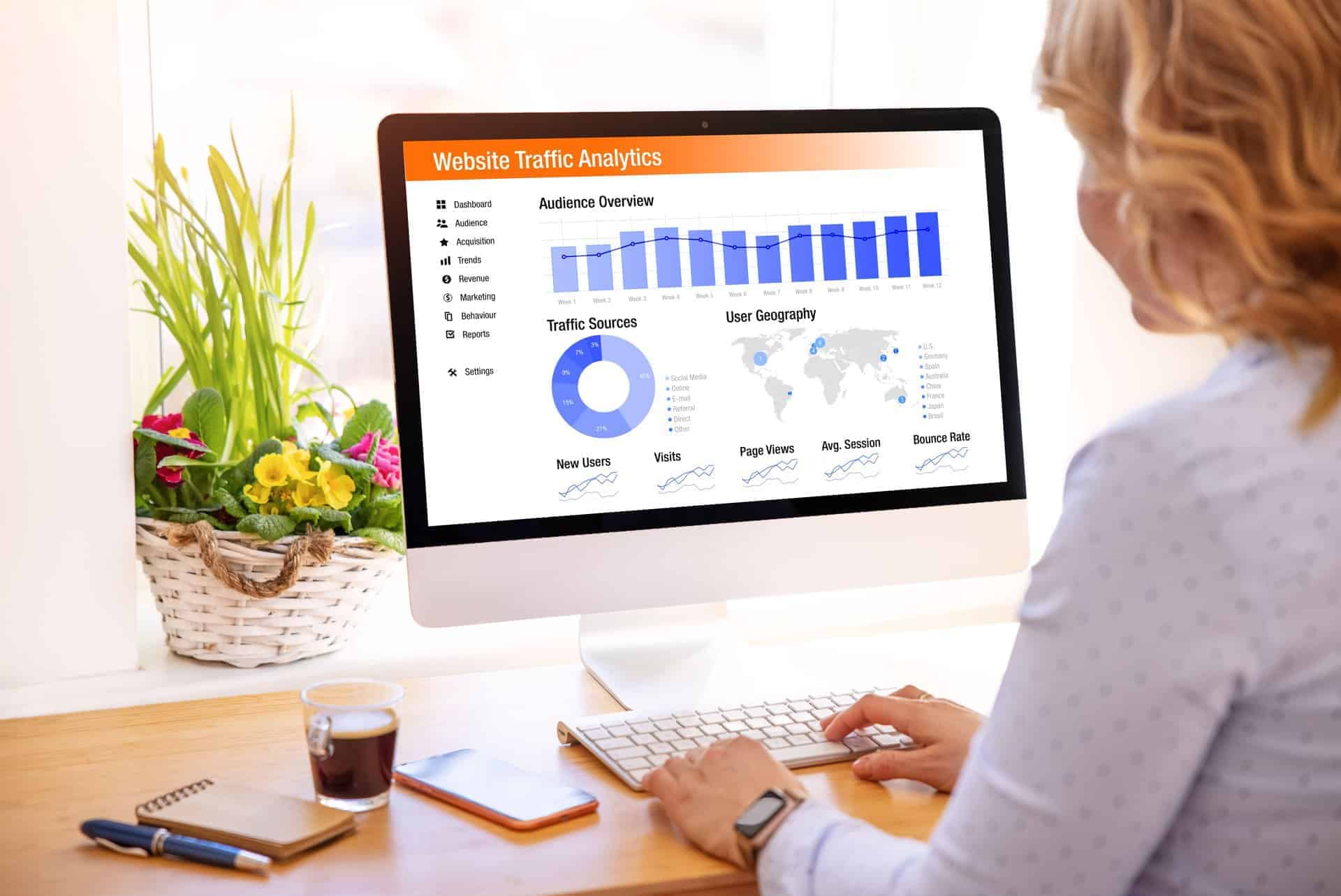How does your social media marketing strategy impact your business SEO?
Today, we’re pulling back the curtain on social media SEO, separating facts from fiction on how these platforms really impact your SEO results.
It’s well known that social media is a powerful marketing avenue and that SEO is an essential element of marketing success.
Both build your brand awareness by spreading your content to new eyes based on the internet activity of your audience.
Both can boost your user base and influence how frequently customers purchase online or even visit your store.
But the way these two marketing approaches influence each other is often left murky. Just how powerful are keywords used in your social media content, and do links in social media result in site authority in your SEO page ranking calculation?
Does having an active engaged social media following improve your SEO rankings on Google?
Social Media Links and Likes Drive Traffic to Your Website
Social media is not counted for backlinks and site authority calculations, but links are still powerful for their primary purpose: driving traffic to your website.
If your social media posts are engaging and inspire clicks to your website, that website traffic is real. The more page visits, readers, and conversions you can earn through engaging social media campaigns, the more traffic your site will see and the higher your relevancy and site authority can become.
As such, social media SEO has a place in your overall marketing strategy.
Reposts On Large Networks Spread the Effect
Likewise, there is a direct correlation between reposts and SEO results in terms of traffic and relevancy.
It’s not the reposting itself but the result – greater exposure to a larger social network – that provides the benefit.
The larger the (active) network for each reposting account, the more exposure and traffic your post, link, and website will earn.
Social Media Links Can Be Used as Relevant Links
A link shared on social media can also become a real backlink if someone sees it and decides to use it on their website.
Many journalists, bloggers, and scholars use the information found through social media to write and share real content.
For example, a science journal might see your tweet linking to your product’s How It Works page. They link this in their article about similar technology, and your social media campaign just created a relevant backlink – without itself counting toward your linking score.
To sum up, links and reposts are not a direct ranking factor in Google search rankings, but they definitely impact your social media SEO.
Social Media Does Not Boost Website Authority
Google does not include your social media page’s keyword saturation, content, or following when calculating your website’s score.
Social media links are not backlinks, even if another account links to your site.
Social media friends and followers do not lend official “site authority” to your website or page rankings.
However, Google has admitted to taking some elements of brand activity and user response into consideration.
A brand that is more alive and interactive on social media may see some small benefits in terms of SEO relevance.
Google considers the difference between a “dead” brand and a “live” one across multiple channels. Engaging with your audience regularly is one of the most effective social media SEO tactics.
Your Social Media Business Profile Page Can Rank
Interestingly, social media pages do rank on their own accord, based on keywords and other elements on each individual page. This means your business profile page has a chance to earn its own page ranking.
A busy social media page with recent posts and well-tuned homepage content can win you a second front-page position for your brand if both your website and your social media page rank well.
Your social media profile pages (one per channel) can also direct users to your website, services, tools, videos, or community discussions to boost SEO in other ways.
Social Media Boosts Existing Customer Activity
One of the essential elements of social media marketing is engaging your existing audience.
There is a running myth that social media is primarily an avenue for new customers. New customers are great, and your community can grow. However, your social media feed’s contest participants and readers will be previous and returning customers.
Ultimately, user activity is great for your social media SEO.

Engaging your return customers creates online activity, traffic, and word-of-mouth referrals that might not occur otherwise.
Returning customers tend to be quiet and self-assured about their return. They come back, buy a few things, and disappear again. With social media, fans of your brand have somewhere to put their energy – and constant inspiration to return to your website.
We know that Google considers traffic and engaged, diverse online activity as part of page relevancy and site authority.
By creating greater activity around your website with social media, you can improve your overall SEO results.
Social Media Influencers Can Make an Impact on Your SEO
Influencers do make a difference.
Shares with a widely networked account can make a splash in your website traffic, and links from other established websites can boost your backlinking score.
Therefore, working with one or more influencers who can spread awareness and enthusiasm about your website and products is recommended. Share an audience, share links, and build a mutually beneficial marketing strategy to gain the traffic and authority boost to your SEO from working with a social media influencer.
The Right Social Media Platform > Being on Every Platform
Want to make a concentrated impact on your social media SEO?
Focus on your top two to five social media platforms, and don’t try to be everywhere at once.
SEO works best when you focus your efforts. You wouldn’t want to dilute your site’s SEO between a dozen different websites. Likewise, don’t worry about being on every social media platform.
Good social media marketing says to pick the platforms that work best for your brand and contain the greatest number of your target audience groups.
Good SEO marketing says to focus your traffic and activity on one website and a few key pages to get the best results.
So, pick your best social media platforms.
Optimize your content and posts for each to build engagement with that community and fine-tune your profile pages for the best possible SEO authority pointing at your website.
When it comes to social media and SEO, the right platform is always better than being on every platform.
We’re Here to Help You Develop an Effective Strategy
The bottom line takeaway here is that while effective social media marketing does not directly factor into Google’s ranking algorithm, improved SEO ranking can be achieved from secondary signals driven by your social media efforts.
The key is to develop and execute an efficacious strategy.
Ready to really get the most from your social media campaign? Looking to boost your SEO with smart, forward-thinking strategies? Contact us today to start your marketing strategy consultation to optimize results and win your brand’s best page ranking yet.



